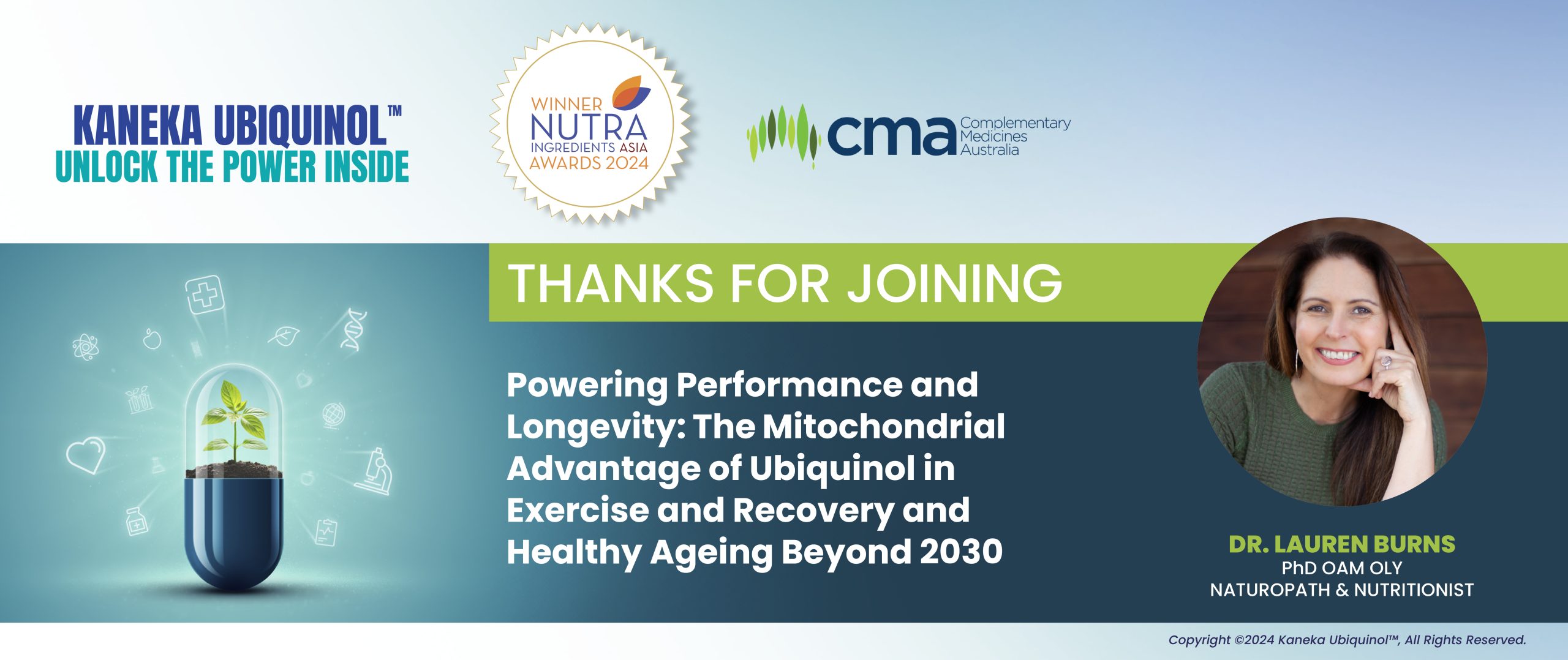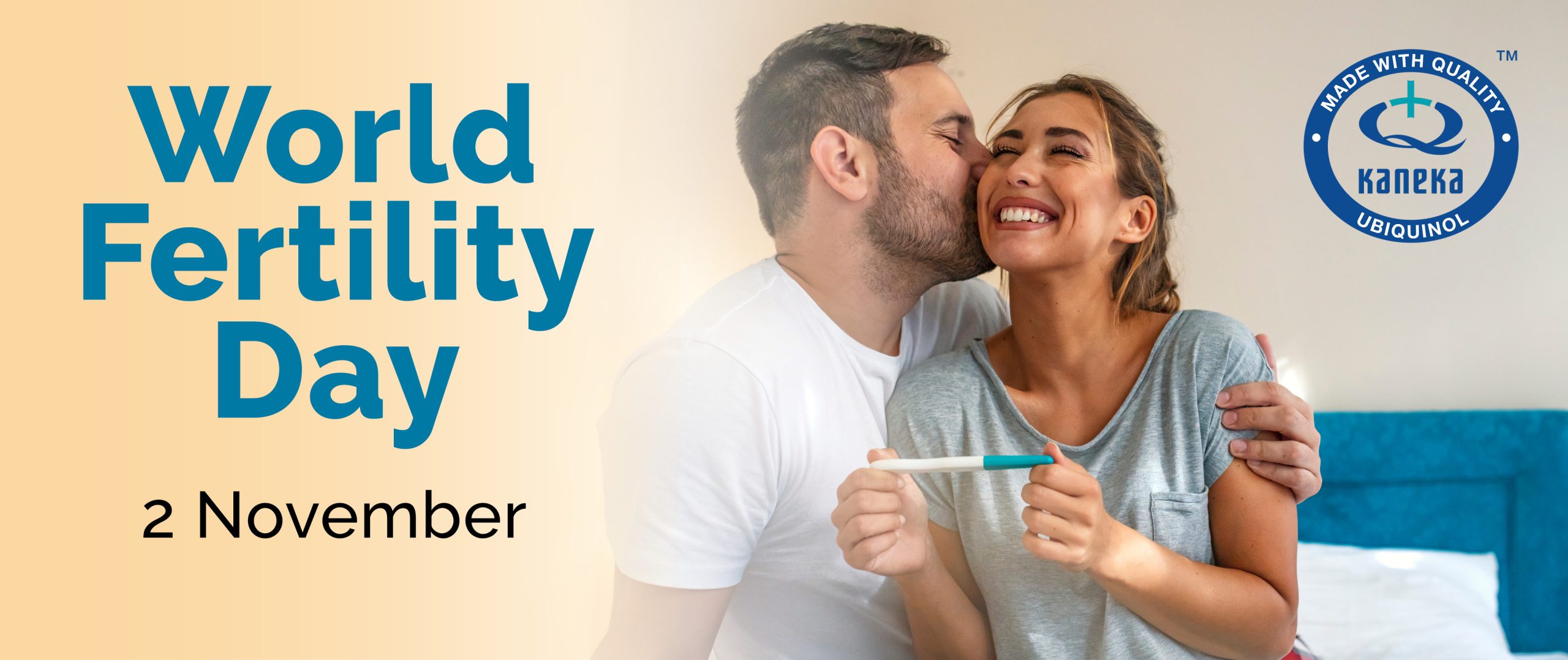
Importance of Healthy Mitochondria on World Fertility Day
Oct 2023Recent Article
Fertility is Impacted by Optimal Ubiquinol Levels
With Australia’s fertility rate at a record low, Australasia’s leading fertility experts and healthcare practitioners are looking at the essential role of the mitochondria, and optimal ubiquinol levels, and links to fertility health.
In Australia, one in six couples experience infertility[1], with 30% of cases attributed to males, 30% to females and the remaining 40% due to combined factors.[2] As such, 50% of infertility cases in Australia are linked to male fertility issues.[3]
Oxidative stress and mitochondrial dysfunction are among the most investigated mechanisms for reduced fertility.[4,5]
Mitochondria are organelles found in all body cells. They are the “powerhouses” of cells, generating energy (ATP) that is fuelled by the body’s production of ubiquinol. The highest number of mitochondria are found in females within oocytes (eggs) and in males within sperm. As a result, these two cells, responsible for creating life, contain the highest concentrations of ubiquinol. Ubiquinol ensures that each cell functions optimally and provides the energy required for their function.
With this considered, scientists are focusing on the link between mitochondrial dysfunction, ubiquinol depletion and fertility health in an effort to ‘stop the clock’ on declining fertility rates.
According to Australia’s leading fertility expert Dr Leah Hechtman, numerous clinical studies have shown that ubiquinol supports improved sperm morphology, motility and density, substantially changing the way we look at male fertility issues.[1,6,7]
“Male sperm count has declined by more than 50% in the past 50 to 60 years,” explained Hechtman. “The process of spermatogenesis is highly influenced by exposure to variables such as oxidative stress. Lifestyle factors such as stress, a poor diet, smoking and ageing have a negative impact on male reproductive function,” she continued.
“What we’ve seen through these factors and clinical studies is that ubiquinol can help to improve sperm count, motility and morphology, therefore positively influencing male fertility rates.”
Several studies validate ubiquinol’s role in assisting female reproductive health. Thakur et al (2016) showed that, after taking a ubiquinol supplement for four months, 50 non-menstruating infertile women saw their FSH levels triple and LH levels double.[6] In women with amenorrhoea, stimulation of FSH and LH is essential for them to ovulate and will influence if they can conceive at all.
“Regarding female fertility, the female egg contains the highest concentration of mitochondria,” added Hechtman. “Because ubiquinol optimises mitochondrial function, this can act as a support mechanism for female reproductive health.”
Hechtman said that events like World Fertility Day are so important in strengthening the message regarding fertility on the global health agenda. She also urged Australians to have a closer look at lifestyle factors such as diet, exercise, sleep and stress levels, all which play a critical role in supporting fertility and reproductive health.
ABOUT DR LEAH HECHTMAN (PhD)
Leah is a distinguished naturopathic clinician with a specialisation in fertility, pregnancy and comprehensive reproductive health for all. Beyond her clinical expertise, she is a researcher, author and dedicated educator. She aims to inter-professionally bridge disciplines and theories with her clinical and research colleagues seeking the most collaborative and holistic outcome for all. Her thirst for knowledge, love of science, and her keen pursuit of understanding and developing medicine, makes her educational presentations relevant, practical, and above all clinically effective.
References:
[1] Fertility Society of Australia and New Zealand. Fertility Society of Australia and New Zealand. (2023). Retrieved 9 October 2023, from https://www.fertilitysociety.com.au/
[2] Male infertility. Fertility Society of Australia and New Zealand 2023. Retrieved 9 October 2023, from https://www.fertilitysociety.com.au/male-infertility-australia-new-zealand/
[3] Katz D, et al. Male Infertility – The Other Side of the Equation. Australian Family Physician 2023. Retrieved 8 October 2023, from https://www.racgp.org.au/afp/2017/september/male-infertility
[4] Salvio G, et al. Coenzyme Q10 and Male Infertility: A Systematic Review. Antioxidants (Basel) 2021;10(874):1-16.
[5] Xu Y, et al. Pretreatment With Coenzyme Q10 Improves Ovarian Response and Embryo Quality in Low-Prognosis Young Women With Decreased Ovarian Reserve: A Randomized Controlled Trial. Reprod Biol Endocrinol 2018;16(1):29.
[6] Thakur, et al. Effect of Ubiquinol Therapy on Sperm Parameters and Serum Testosterone Levels in Oligoasthenozoospermic Infertile Men. J Clin Diagnostic Res 2015;DOI: 10.7860/JCDR/2015/13617.6424.
[7] Thakur, et al. Effect of Ubiquinol on Serum Reproductive Hormones of Amenorrhic Patients. Indian J Clin Biochem 2016;31(3):342-348.
You can share this by:
Keep up-to-date with Ubiquinol News
Ubiquinol Headlines

Retail Pharmacy: Healthy Ageing in the Spotlight
Apr 2025Category: Ageing, Antioxidants, APP, Conference, Conferences, Endurance, Health, Health Industry, healthy ageing, Immunity, In The News, Mitochondrial health, Nutrition, Online, Stress, Ubiquinol, Vitamins, wellnessRead More
Retail Pharmacy: The Impact of Loneliness on Heart Health
Apr 2025Category: cardiovascular health, dr ross walker, Heart, In The News, Mitochondrial health, Online, UbiquinolRead More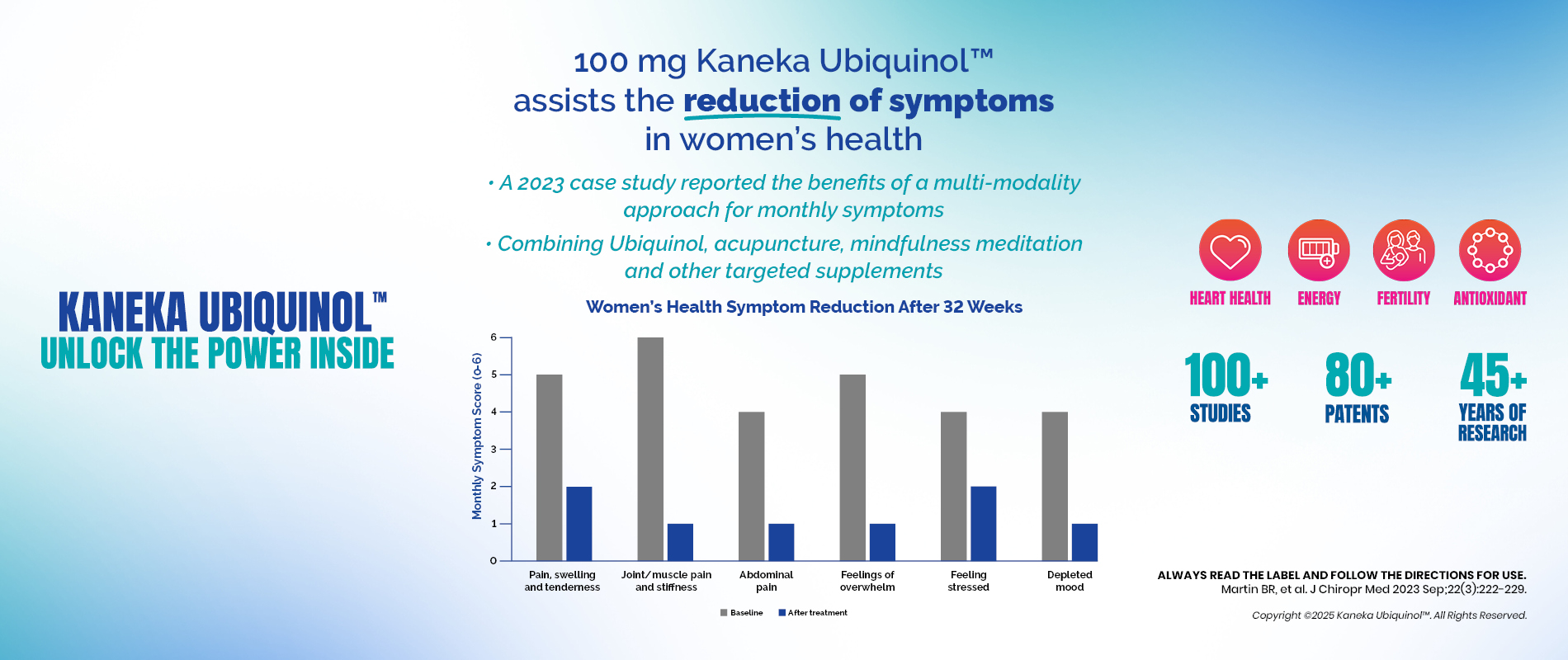
Ubiquinol for Women’s Health
Apr 2025Category: Ageing, Antioxidants, Fertility, Kaneka, Mitochondrial health, Ubiquinol, wellness, Women's HealthRead More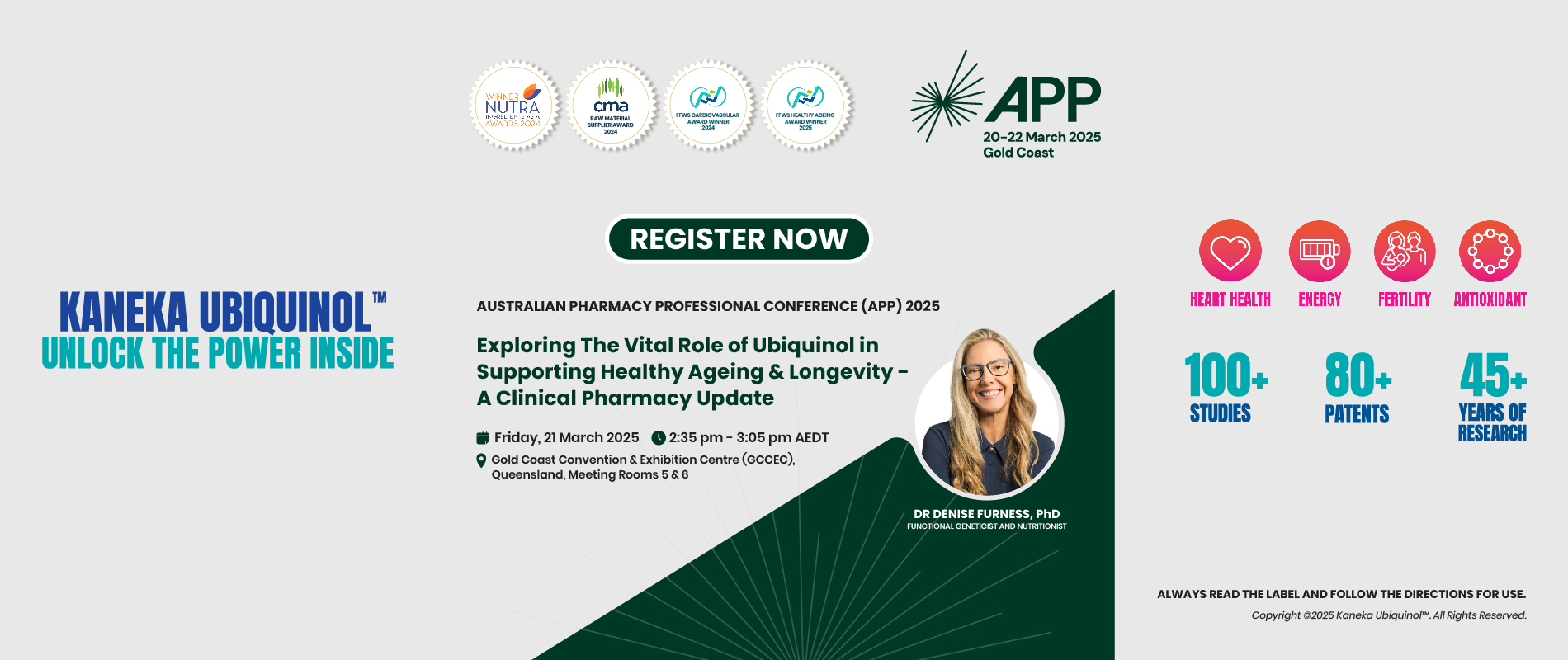
Kaneka Ubiquinol™ at APP 2025: Advancing Healthy Ageing & Longevity
Mar 2025Category: Ageing, Antioxidants, APP, Conference, Conferences, Energy, Fatigue, Health, Health Industry, healthy ageing, Kaneka, Mitochondrial health, Nutrition, UbiquinolRead More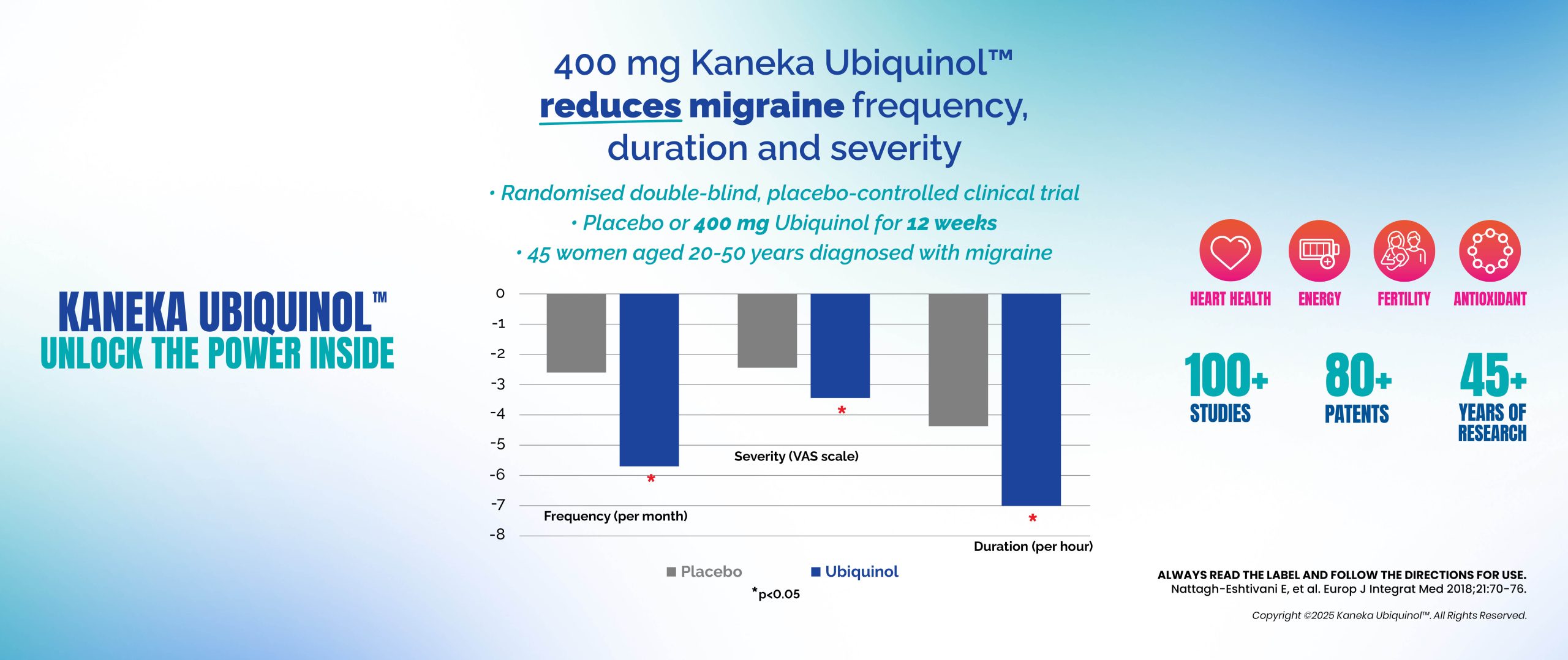
Ubiquinol: Supporting Migraine Relief Through Cellular Energy
Jan 2025Category: Antioxidants, complementary medicine, Energy, Fatigue, Health, Health Industry, healthy ageing, Kaneka, Mitochondrial health, Nutrition, Stress, Ubiquinol, Vitamins, wellnessRead More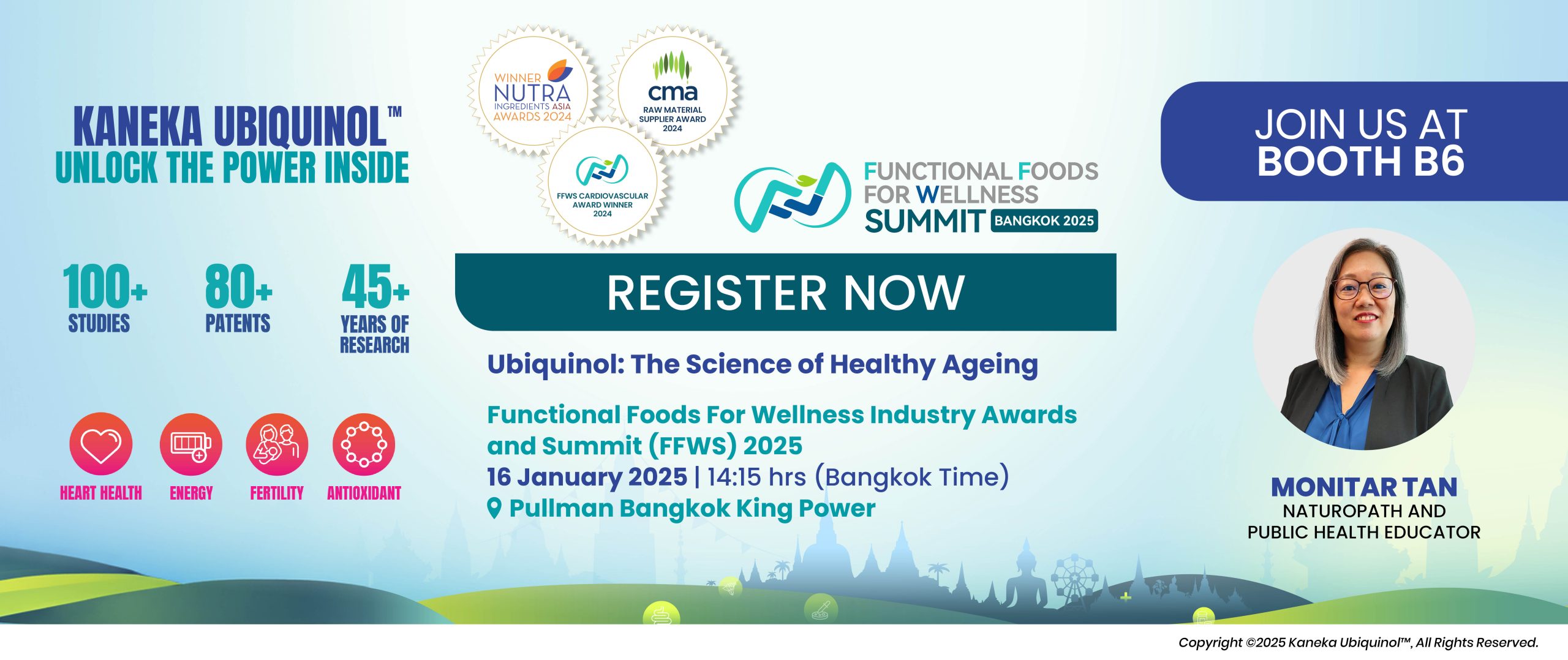
Kaneka Ubiquinol™ at Functional Foods for Wellness Industry Awards and Summit, #FFWS2025
Jan 2025Category: Ageing, Antioxidants, Awards, cardiovascular health, Conference, Conferences, Energy, Fatigue, FFWS2025, Health, Health Industry, healthy ageing, Kaneka, Menopause, Mitochondrial health, Nutrition, Ubiquinol, VitaminsRead More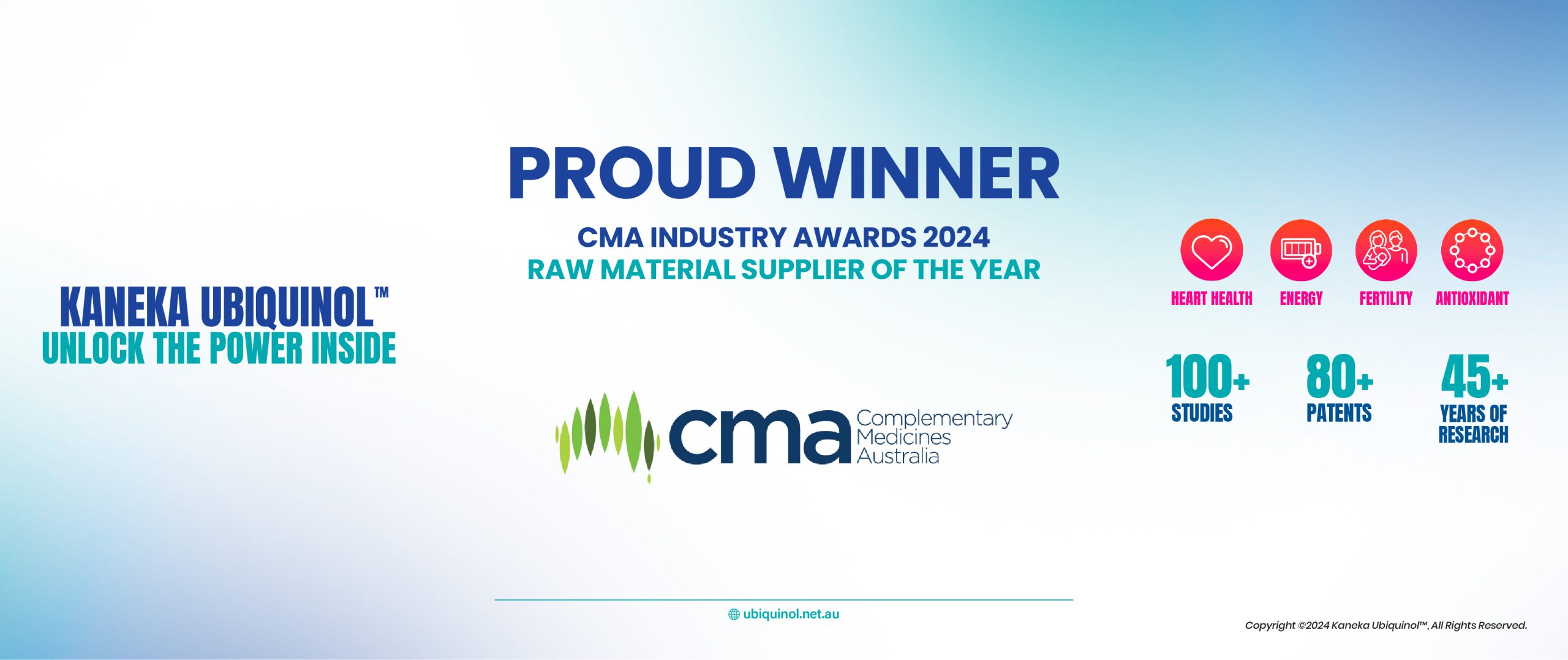
Kaneka Ubiquinol Wins Prestigious Complementary Medicines Raw Material Supplier of the Year Award 2024
Dec 2024Category: Ageing, Awards, cardiovascular health, complementary medicine, Conference, Conferences, Endurance, Energy, Fatigue, Fertility, Fitness, Health, Health Industry, healthy ageing, Heart, Immunity, In The News, Kaneka, Lungs, Memory, Mitochondrial health, Nutrition, Online, Stress, Ubiquinol, Vitamins, wellnessRead More